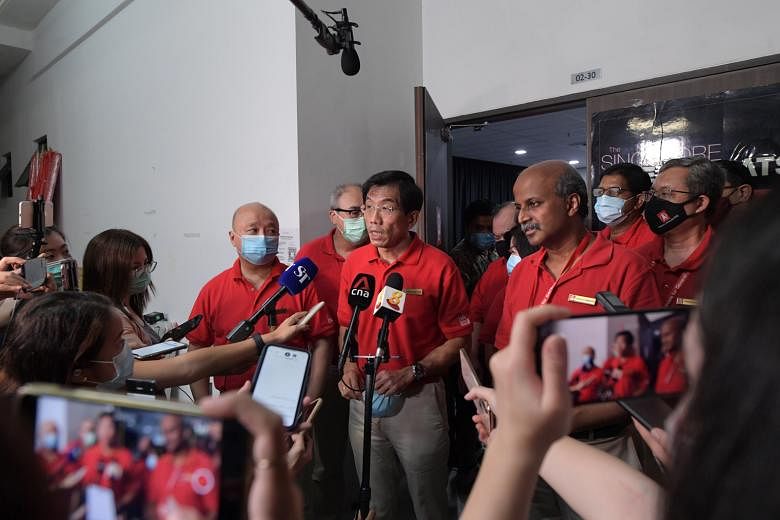The Singapore Democratic Party (SDP) yesterday presented its appeal in the apex court against correction directions issued to it under the fake news law, mounting a fresh argument that the law is a serious restriction on freedom of speech guaranteed in the Constitution.
The party's lead counsel, Mr Suresh Nair of law firm PK Wong & Nair, argued before five judges in the Court of Appeal that public interest has been defined in the Protection from Online Falsehoods and Manipulation Act (Pofma) in overly broad terms.
He added that it goes beyond the permissible constraints on freedom of speech outlined in Article 14 of the Constitution and is invalid.
The court, comprising Chief Justice Sundaresh Menon and four Judges of Appeal - Mr Andrew Phang, Ms Judith Prakash, Mr Tay Yong Kwang and Mr Steven Chong - reserved judgment.
They gave Mr Nair four weeks to submit his written arguments on the constitutionality of Pofma's provisions, which had not been made previously in the SDP's failed appeal in the High Court. Justice Ang Cheng Hock had dismissed the appeal in February.
Another issue arising from the case is the question of whether a correction direction should be upheld even if the court disagrees with the minister's initial interpretation of the targeted statement.
In the SDP's case, Manpower Minister Josephine Teo had ordered corrections on the grounds that the SDP had falsely claimed that the retrenchment of local professionals, managers, executives and technicians (PMETs), as an absolute number, was on the rise.
Justice Ang disagreed with this interpretation as the article that attracted the corrections had referred to a "rising proportion of Singapore PMETs getting retrenched". Interpreting it to mean an absolute number would ignore the word "proportion", he had said.
Yesterday, the Attorney-General's Chambers (AGC) presented this argument again and said Justice Ang had taken too literal an approach in focusing on the word "proportion", but Justice Phang criticised the argument as "so much juggling and semantic manoeuvring" and said it did not make sense.
Despite disagreeing with the interpretation, Justice Ang upheld the corrections after finding an alternative interpretation of the phrase to mean that the share of retrenched local PMETs as a proportion of all local PMET employees had been increasing - which was still false.
Mr Nair argued that Justice Ang had erred in doing so as the correction directions were issued on the basis of the earlier interpretation which had been rejected. He said the minister should be bound to the interpretation originally set out in the corrections and not be free to "move the goalposts" to another interpretation that emerges later on.
Ms Kristy Tan of the AGC responded that the minister has the power to vary the correction directions, but CJ Menon pointed out that Mrs Teo did not do so despite an invitation from the High Court.
Justice Chong said: "We shouldn't anticipate that the minister will issue the varying subject statement, particularly in this case when, having been invited to do so, she declined to do so. So why should we uphold a subject statement (which had been provided by Justice Ang) in anticipation that the minister will (vary the correction directions)? "


